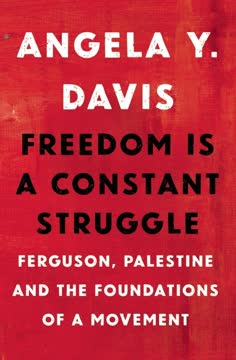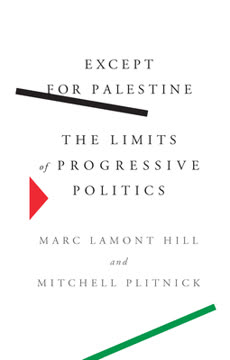Key Takeaways
1. Palestine: The Exception to Progressive Values
If we are to adopt a progressive political outlook—one rooted in anti-racist, anti-imperialist, humanistic, and intersectional values—we must begin to prioritize the freedom, dignity, and self-determination of Palestinians.
Selective outrage. American progressives often express strong outrage at human rights abuses and authoritarian policies globally, yet frequently remain silent or indifferent when the issue concerns Palestine. This double standard was starkly evident when President Trump's draconian immigration policies sparked widespread condemnation, while his administration's decision to cut funding for UNRWA—which provides essential services to millions of Palestinian refugees—met with little more than silence from the same progressive voices. This selective application of values highlights a fundamental contradiction in progressive politics.
Bipartisan complicity. The tendency to view Palestine as an exception is not solely a product of the Trump era; rather, it reflects decades of bipartisan U.S. policy. While Trump's actions were often more aggressive and transparent, they frequently built upon long-standing policy positions that preceded him. This historical context means that the "good old days" to which some politicians promise a return were themselves fertile ground for the normalization of the occupation and dispossession of the Palestinian people, cementing an Orientalist perception within the public imagination.
Systemic issues. The authors argue that U.S. policy in Palestine and Israel is deeply intertwined with America's own struggles with white supremacy, Islamophobia, anti-Semitism, and ethnocentrism. True progressive politics demands an intersectional approach that recognizes how these systems of oppression inform foreign policy. Prioritizing Palestinian freedom, dignity, and self-determination is not merely an act of solidarity, but a necessary step towards grappling with America's own history of structural injustice and ensuring moral consistency in its global engagement.
2. "Right to Exist" as a Political Weapon
The relevant political question is: Is the dispossession and ongoing denial of rights at various levels to Palestinians justified?
Cynical justification. The demand for Palestinians to recognize Israel's "right to exist," and more recently, its "right to exist as a Jewish state," has evolved from an axiomatic statement into a cynical tool. This demand is strategically deployed to justify the rejection of a Palestinian state, distract from criticism of Palestinian rights deprivation, and frame advocacy for Palestinian rights as anti-Semitic violence. While Israel is a stable regional superpower, Palestine remains stateless, with worsening conditions in the West Bank and Gaza.
Zionism and dispossession. Fundamentally, the "right to exist" discourse questions the legitimacy of Zionism in relation to the formation of Israel. Critics argue that Zionism, as a settler-colonial project, necessitated the dispossession and removal of Palestinians in 1948, along with their forced exile and juridical erasure. Demanding that Palestinians affirm Israel's right to exist, therefore, is seen as asking them to legitimize their own historical and ongoing dispossession, a demand that even early Zionist thinkers like Ze'ev Jabotinsky recognized as unreasonable.
Discriminatory implications. The demand for recognition of Israel as a "Jewish state" is unique to Palestinians and carries profound discriminatory implications. Israel's 2018 "Nation-State Law," which declares Israel as the nation-state of the Jewish people and downgrades Arabic's status, codifies a system where national self-determination is exclusive to Jews. This law, seen by many as a constitutional mandate for racist acts, demonstrates how such recognition can underpin legal discrimination against non-Jewish citizens, making the demand ethically indefensible for Palestinians.
3. BDS: Criminalizing Nonviolent Dissent
The decision to support the rights of Palestinians as equal to those of Israelis is not a complicated one.
Nonviolent origins. The Boycott, Divestment, and Sanctions (BDS) movement emerged in 2005 from a broad coalition of Palestinian civil society groups, inspired by the anti-apartheid movement in South Africa. It calls for nonviolent economic pressure on Israel until it complies with international law by:
- Ending its occupation and colonization of all Arab lands and dismantling the Wall.
- Recognizing the fundamental rights of Arab-Palestinian citizens of Israel to full equality.
- Respecting, protecting, and promoting the rights of Palestinian refugees to return to their homes and properties as stipulated in UN Resolution 194.
Suppression of speech. Despite its nonviolent nature, BDS has faced intense resistance, often being condemned as anti-Semitic or a front for Israel's destruction. In the U.S., federal and state governments have enacted laws or policies to stigmatize, penalize, or even criminalize BDS activities. These anti-BDS laws, which have been challenged and overturned in federal courts in Kansas, Arizona, and Texas for violating the First Amendment, represent an attempt to suppress protected political speech and collective civil action.
Shifting the debate. While BDS's economic impact on Israel has been negligible, its true success lies in shifting the conversation around the Israeli-Palestinian conflict. It has moved the focus from abstract questions of states and territory to concrete issues of equal rights and international law. The intense backlash against BDS, even from ostensible progressives, reveals a discomfort with the movement's ability to highlight the moral inconsistency of enjoying liberal privileges while denying basic rights to Palestinians.
4. Trump's Policies: An Accelerated Status Quo
Trump’s decisions merely did away with even the flimsy pretense of American even-handedness.
Golan Heights precedent. President Trump's recognition of Israeli sovereignty over the Golan Heights in 2019 was a dramatic break from decades of U.S. policy and a direct challenge to international law, which forbids the acquisition of territory by force. While previous administrations had considered the Golan a bargaining chip for peace with Syria, Trump's unilateral decision, made without any strategic urgency, set a dangerous precedent for what might happen with the West Bank, effectively giving away a potential diplomatic leverage.
Jerusalem embassy move. The relocation of the U.S. embassy to Jerusalem, while appearing to be a radical Trump initiative, was the culmination of a bipartisan project dating back to the 1995 Jerusalem Embassy Act. Successive presidents had used waivers to delay the move, recognizing its diplomatic sensitivity. Trump, however, disregarded these cautions, accelerating a long-standing policy to its reckless conclusion. This move, while pleasing to many Israelis, was widely condemned internationally and further undermined the U.S. role as a neutral mediator.
UNRWA defunding. Similarly, Trump's decision to cut all U.S. funding to UNRWA in 2018, the largest donor to the agency, was not a novel idea but an aggressive execution of a policy long debated in Washington. This move, supported by Prime Minister Netanyahu, aimed to unilaterally redefine Palestinian refugees by eliminating the agency that serves them, thereby taking the "right of return" off the diplomatic table. These actions, though heartless, were an acceleration of existing U.S. policies that had consistently weakened the Palestinian bargaining position.
5. Gaza: A Man-Made Humanitarian Crisis
The people of Gaza live in a situation much too precarious to be ignored.
De-development and isolation. Since the 1948 war, Gaza has been a focal point of Palestinian suffering, exacerbated by overcrowding, limited resources, and authoritarian rule. Under Israeli occupation since 1967, Gaza underwent "de-development," a process of expropriation, economic integration into Israel's economy, and deinstitutionalization of civil society. The construction of a barrier around Gaza in the 1990s, followed by Israel's 2005 withdrawal of settlements and military, led to its effective physical ghettoization and isolation, making it dependent on Israel for essential infrastructure.
US complicity and conflict. The U.S. has played a significant, bipartisan role in shaping Gaza's dire conditions. After Hamas won the 2006 Palestinian legislative elections, the U.S. and Israel imposed a harsh boycott on the Palestinian Authority, leading to financial chaos and internal clashes between Fatah and Hamas. The U.S. even supported a clandestine Fatah coup attempt against Hamas. This policy contributed to Hamas's full control of Gaza and Israel's subsequent tightening of the blockade, leading to devastating military operations like "Cast Lead" (2008-09) and "Protective Edge" (2014).
Unlivable conditions. The Israeli-Egyptian blockade, now in its fourteenth year, combined with repeated military assaults, has rendered Gaza largely "unlivable." A 2015 UNCTAD report detailed:
- 4% potable water
- Electricity limited to four hours per day
- 50% unemployment
- 72% food insecurity
These conditions amount to collective punishment, a war crime, yet the U.S. has largely remained indifferent, using Hamas as a scapegoat to justify policies that degrade civilian life and undermine any hope for a peaceful future.
6. The US: A Biased "Honest Broker"
For many years, Yasser Arafat and then Mahmoud Abbas gambled on the hope that the close relationship between Israel and the United States meant that America could convince Israel to compromise. They lost that bet, and Trump made that abundantly clear not by changing U.S. policy, but by shifting it into overdrive for all the world to see.
Long-standing bias. The notion of the United States as an "honest broker" in the Israeli-Palestinian conflict has been a long-standing illusion. Decades of U.S. policy have consistently prioritized Israeli interests, providing extraordinary financial and military support without concrete demands regarding Palestinian human rights or self-determination. This unwavering support has enabled Israel to resist compliance with international law and earnest engagement in the peace process, effectively undermining any pretense of U.S. neutrality.
Undermining Palestinian leverage. Successive U.S. administrations, from George W. Bush to Donald Trump, have unilaterally declared positions that favored Israel, such as the permanent existence of some Israeli settlements and the rejection of Palestinian refugee return to Israel. By stating these positions outright, the U.S. removed crucial bargaining chips from the Palestinians, leaving them in an even weaker and more desperate negotiating position. This approach has consistently reduced the Palestinians' leverage, making genuine, equitable negotiations virtually impossible.
Accelerated transparency. Trump's presidency, while often seen as a deviation, merely stripped away the "flimsy pretense of American even-handedness." His actions, such as moving the embassy to Jerusalem and defunding UNRWA, were not radical policy shifts but rather an acceleration of deeply rooted, bipartisan policies. This transparency, however, starkly revealed the problematic nature of having Israel's closest ally and benefactor serve as the sole legitimate mediator, confirming to many Palestinians that the U.S. was not a neutral party but an active participant in their oppression.
7. Shifting Tides in US Progressive Politics
The available evidence suggests this is not a fringe position, although it remains a point of sharp division within the party itself—especially among elected officials.
Emerging critique. The traditional political suicide of criticizing Israel during a U.S. presidential campaign began to erode with Bernie Sanders' unapologetic statements in 2016, where he called Israel's actions in Gaza "disproportionate" and insisted the U.S. could not "continue to be one-sided." This marked a significant shift, demonstrating that a viable mainstream candidate could offer a distinct critique of Israeli actions without facing career-ending repercussions.
New generation of Democrats. The election of figures like Rashida Tlaib and Ilhan Omar, the first two Muslim women in Congress, further highlighted a growing split within the Democratic Party. These fiercely progressive and outspoken congresswomen openly defended the right to boycott Israel, signaling a new generation of Democrats willing to challenge entrenched party orthodoxies on Israel-Palestine. Their victories, despite controversy, indicated a changing political landscape.
Growing grassroots support. Polling data, such as the 2018 University of Maryland Critical Issues Poll and Pew Research Center surveys, reveals a significant shift in Democratic sentiment. A majority of Democrats now favor imposing sanctions or taking more serious action against Israeli settlements, and liberal Democrats, in particular, show greater sympathy for Palestinians than for Israel. This indicates a strong and growing grassroots movement within the Democratic Party that opposes the U.S.'s one-sided policies, challenging the notion that support for Palestinian rights is a fringe position.
8. Beyond Zero-Sum Thinking: Embracing Equal Rights
Only from this place can equal human, civil, individual, and national rights for both Israelis and Palestinians be achieved.
Rejecting false dichotomies. The prevailing "zero-sum" approach to the Israeli-Palestinian conflict, which assumes that any gain for Palestinians must mean a loss for Israelis, is a morally problematic and ultimately self-defeating framework. This mindset, often reinforced by pro-Israel narratives, dictates that Israeli rights are always of superior importance, justifying policies that subjugate Palestinians. A progressive stance must reject this, recognizing that true security and peace for one people cannot come at the expense of the other.
Principled politics. To move beyond current limitations, progressives must adopt a principled politics rooted in the fundamental humanity of Palestinians. This means asserting that Palestinians are entitled to the same rights to freedom, justice, equality, safety, and self-determination as everyone else, without requiring their rights to converge with Israeli interests to be deemed valuable. This approach is not only morally sound but also the only viable path to a lasting and equitable resolution for all people in the region.
Universal values. The authors argue that a universalist view suggests that a shift in power towards equal rights will lead to a more peaceful and productive future for all. This perspective dictates that Zionism, defined as a Jewish/Israeli nation, is no more or less valid than Palestinian nationalism, and any solution must be tailored to accommodate equal rights as a fundamental principle. This is the essence of democratic thought in multi-ethnic settings, demanding that all sides be held to the same critical approach.
9. The Moral Imperative of Progressive Consistency
Ultimately, American progressives and those we elect must be willing to engage in sincere and serious conversations about the current policy context.
Challenging the status quo. The Republican Party has increasingly adopted an extreme vision of total Israeli dominance, explicitly abandoning the two-state solution and declaring Israeli settlements legal. The weak Democratic response, even from progressive figures, is deeply troubling. Progressives must move beyond tepid opposition and actively challenge every aspect of U.S. policy toward Israel and Palestine, ensuring it aligns with their core political values of freedom, justice, and equality.
Accountability for all. The "tough neighborhood" excuse often used to justify Israel's repressive policies is self-defeating, as Israel's actions have strained peace treaties and complicated regional relations. Progressives must be willing to hold the Israeli government accountable for its actions, just as they would any other state actor, and place appropriate pressure to act in accordance with international law and human rights norms. This includes pushing for an end to the Gaza siege, halting settlement expansion, and ensuring freedom of movement for Palestinians.
Solidarity and justice. While solidarity with Jewish people against rising anti-Semitism is crucial, it cannot come at the expense of another people's freedom. A truly progressive stance demands that the fight for Palestinian rights be justified on its own terms, not as an exception to progressive values. By dismantling the U.S.'s role in creating injustice, American progressives can leverage their influence to build a future where all people in Israel and Palestine can live in peace, security, and self-determination.
Last updated:
Review Summary
Except for Palestine receives mixed reviews, with praise for its concise and informative approach to US-Israel-Palestine relations. Readers appreciate the book's focus on progressive hypocrisy regarding Palestine and its clear explanations of complex issues. Some criticize its liberal perspective and lack of deeper analysis. The book is recommended for those seeking to understand US involvement in the conflict, though it assumes some prior knowledge. Critics note its potential bias and limited scope, while supporters value its contribution to the discourse on Palestinian rights.
Similar Books









Download PDF
Download EPUB
.epub digital book format is ideal for reading ebooks on phones, tablets, and e-readers.





